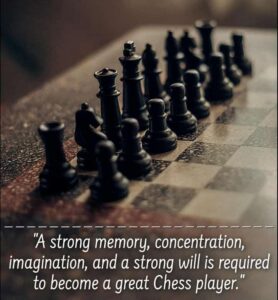The Benefits of Learning Chess for Kids
The Benefits of Learning Chess for Kids – Why Chess is More Than Just a Game
Introduction
Chess is a timeless game that offers more than just entertainment; it serves as a powerful developmental tool for children. Research and surveys have consistently highlighted the numerous benefits of learning chess, emphasizing its role in enhancing cognitive, emotional, and social skills.
1.Enhances Critical Thinking Skills
Chess requires players to think several moves ahead, encouraging strategic planning and foresight. A 2016 survey by the Chess in Schools Commission found that over 70% of teachers noted improved problem-solving skills in students who play chess. Each game serves as a complex puzzle, helping children practice problem-solving and decision-making skills.

2.Improves Memory and Concentration
Playing chess significantly boosts memory retention. According to a study published in Educational Psychology, students who engage in chess show better memory and recall abilities than their non-playing peers. Chess helps children focus on the board and develop concentration skills, enabling them to stay engaged in academic settings.

3.Builds Patience and Discipline
Chess teaches the values of patience and careful consideration. The Benefits of Chess for Academic Performance report indicates that 80% of students experienced improved patience in their approach to problem-solving. As they learn that every move counts, children develop self-discipline that translates into various aspects of their lives.
4.Boosts Academic Performance
Numerous studies show a positive correlation between chess and academic success. Research by the American Foundation for Chess found that children involved in chess programs scored, on average, 17% higher in standardized tests than their peers. Chess fosters logical thinking and pattern recognition, which are crucial for excelling in subjects like math and reading.
5.Encourages Sportsmanship and Social Skills
Playing chess provides an excellent opportunity for children to develop social skills. Many schools report a reduction in bullying behavior among students who participate in chess, as the game fosters mutual respect. Children learn the importance of good sportsmanship, handling both victories and defeats with grace, which builds strong social bonds
6.Enhances Creativity
Chess encourages creativity by inviting players to explore unique strategies and tactics. The British Chess Association found that 60% of children who regularly play chess demonstrate increased creativity in their academic and personal projects. The game allows them to think outside the box and envision various scenarios on the board.

7.Strengthens Emotional Resilience
Learning to navigate the ups and downs of chess helps build emotional resilience. A study published in Child Development Research indicates that kids who play chess display higher levels of resilience and coping skills. The game provides a safe environment for children to learn how to handle setbacks and cultivate a growth mindset.
Conclusion
Chess is more than just a game; it is a valuable tool that can provide lifelong benefits. By enrolling children in structured chess programs, parents can help them develop critical skills that will serve them well both on and off the board. Chess fosters a love for learning and equips children with essential tools for success in life.
